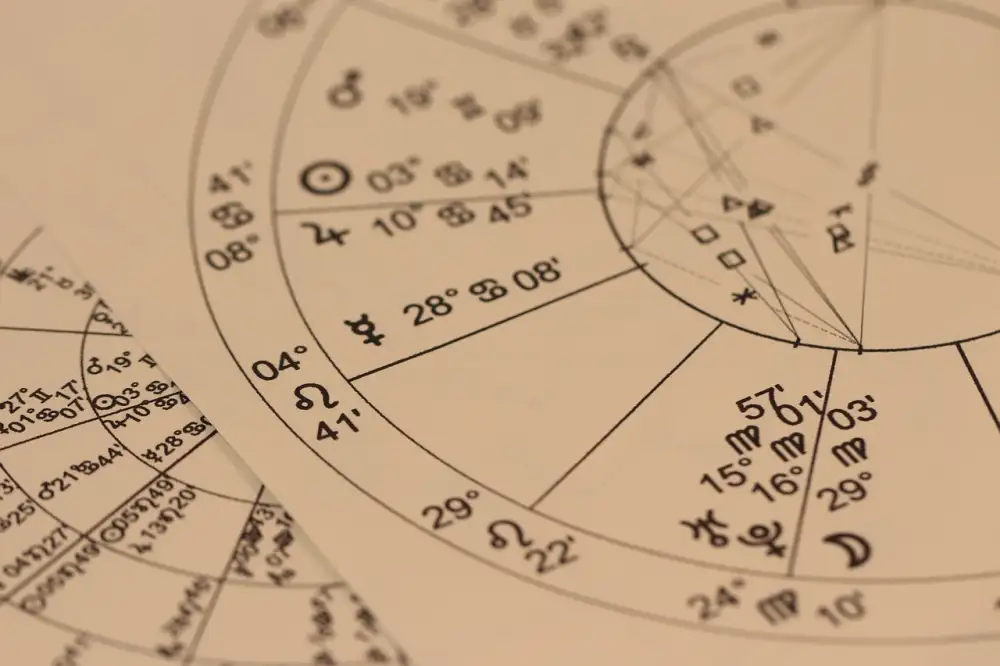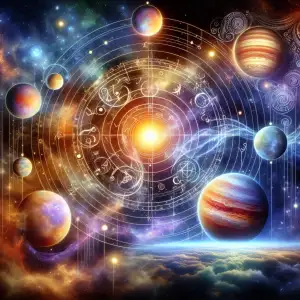Unlock Your Cosmic Blueprint: A Beginners Guide to Vedic Astrology

Dharma
Dharma is a concept central to Indian philosophies, including Hinduism, Buddhism, Sikhism, and Jainism. Often translated as "duty," "ethics," "righteousness," or "cosmic order," dharma signifies the principles that uphold the universe and guide individuals toward a fulfilling life. It emphasizes living in harmony with the natural order and fulfilling one's responsibilities. In Hinduism, dharma is often associated with fulfilling one's social and religious duties, determined by one's caste and stage of life. In Buddhism, dharma refers to the teachings of the Buddha, leading to enlightenment and liberation from suffering. Despite variations in interpretation, dharma underscores the interconnectedness of all beings and the importance of ethical conduct for individual and collective well-being.
Karma
Karma is a concept originating in ancient Indian religions. It suggests that every action, thought, and intention creates a corresponding effect in the universe. This cycle of cause and effect influences a person's future experiences, shaping their destiny. Good actions are believed to bring about positive karma, leading to happiness and favorable rebirths, while negative actions result in suffering and difficult future lives. Karma emphasizes personal responsibility and the interconnectedness of all beings. It is often associated with concepts like dharma (duty) and reincarnation (rebirth). The idea of karma encourages individuals to live ethically and strive for spiritual growth, understanding that their actions have lasting consequences.
Reincarnation
Reincarnation, a concept found in many cultures and spiritual traditions, proposes that the soul or essence of a being is reborn into a new physical form after death. This cycle of death and rebirth, often called samsara, is believed to continue until spiritual liberation is achieved.
Planetary influence
Planetary influence on human affairs has been a topic of fascination for millennia. While astrology, which proposes a connection between celestial movements and human events, lacks scientific backing, the planets undoubtedly impact our world. The gravitational pull of the Sun and Moon, for instance, governs our tides. Solar flares can disrupt communication systems on Earth. Studying planetary science helps us understand Earth's place in the cosmos, its evolution, and the factors that make it habitable. This knowledge is crucial for addressing global challenges and ensuring the sustainability of our planet.
Vedic astrology, with its intricate tapestry of celestial bodies and their cosmic dance, invites us to explore the profound interconnectedness between the heavens and the human experience. Through the language of planets, houses, and nakshatras, it unveils the karmic blueprint that shapes our lives, offering insights into our strengths, challenges, and life's purpose.
Leela Chandrasekhar
Yogas and Doshas
In yogic philosophy, yogas are auspicious planetary combinations in a birth chart that can bring about favorable outcomes, while doshas are inauspicious combinations that can create challenges or obstacles. These yogas and doshas are based on the positions and relationships of planets at the time of a person's birth. They are believed to influence various aspects of life, including personality, relationships, career, and health. There are numerous yogas and doshas described in Vedic astrology, each with its specific interpretations and effects. Some common examples of yogas include Raja Yoga, which is associated with leadership and success, and Gaja Kesari Yoga, which is believed to bring wealth and prosperity. On the other hand, Kaal Sarpa Dosha and Pitra Dosha are examples of challenging planetary combinations that are believed to create obstacles and difficulties in life.
Spiritual remedies
Spiritual remedies encompass a wide range of practices aimed at addressing the non-physical aspects of well-being. These practices often focus on connecting with a higher power, cultivating inner peace, and finding meaning and purpose in life. Some common spiritual remedies include meditation, prayer, yoga, and spending time in nature. These practices can help to reduce stress, promote relaxation, and enhance overall well-being. It's important to note that spiritual remedies are not a substitute for professional medical treatment. However, they can be a valuable complement to conventional healthcare approaches.
Published: 13. 06. 2024 / Updated: 17. 06. 2024
Category: spirituality



